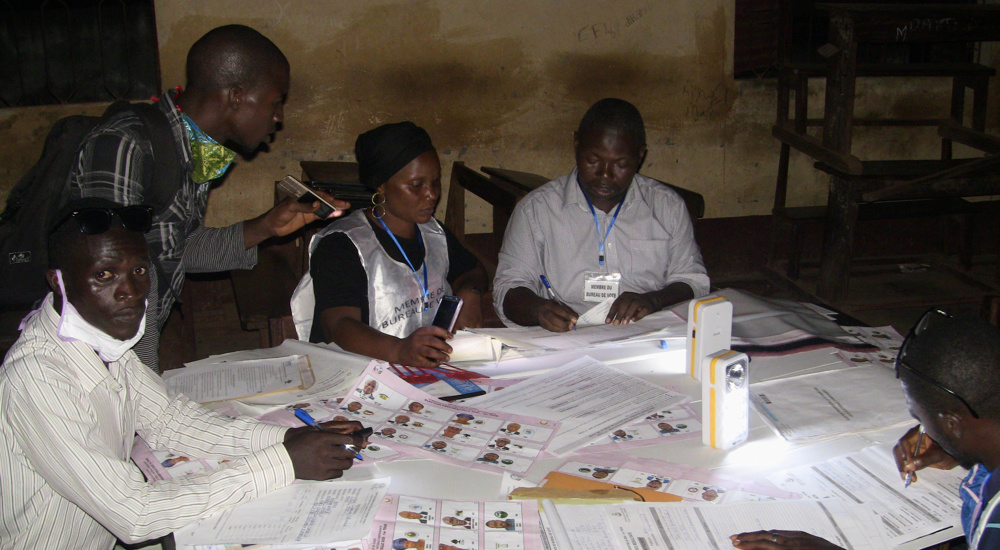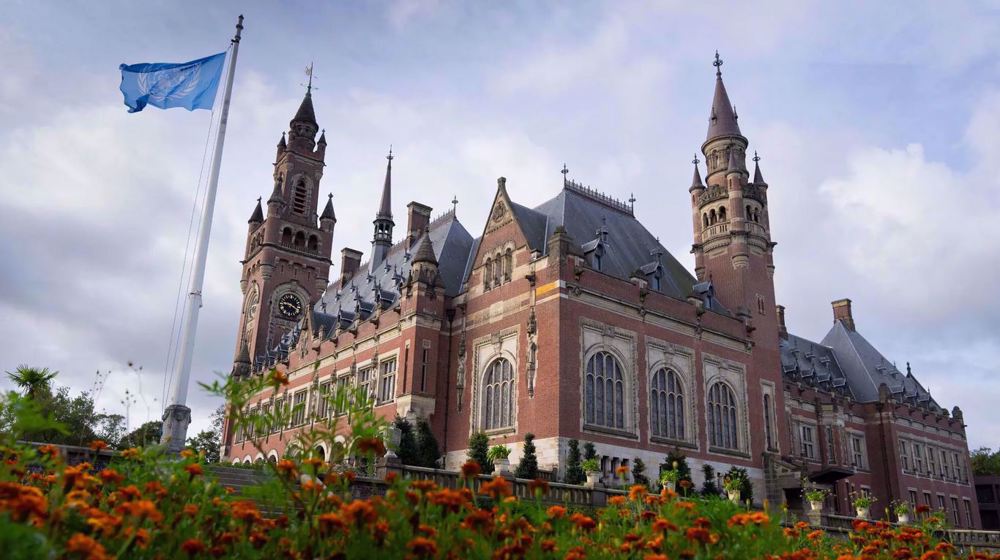Guinea scene of unrest as opposition cries foul after presidential vote
Guinea’s President Alpha Conde is ahead of his rivals in the country’s presidential poll, according to preliminary results, which also show that the main opposition candidate came in second despite his earlier claim of victory.
Preliminary results showed that Conde, 82, won three districts in the capital, Conakry, scoring over 50 percent of the votes in two of the districts, the election commission said Tuesday.
Conde also won the Boffa district, north of the capital, with over 56%, according to the results.

More preliminary results from the Sunday vote will be announced in the coming days, said the head of the electoral commission, Kabinet Cissé.
The commission will announce provisional results within three days of receiving the last polling station tally.
The Constitutional Court will then have eight days to declare a winner. A second round of voting, if needed, is scheduled for November 24.
Election conducted properly: Monitors
Monitors from the African Union (AU) and the Economic Community of West African States (ECOWAS) said the election had been conducted properly.
The political opposition to Conde, however, dismissed the vote as fraudulent.
Cellou Dalein Diallo, who claimed victory before the announcement of the official results, came in second in all of the districts, according to the results released by the commission.
The opposition campaign director accused the government of carrying out “large-scale fraud” in counting ballots.
“Alpha Conde is doing everything possible to change ballot box results in his favor,” said Diallo’s campaign director Fode Oussou Fofana.

The communications director for Diallo’s UFDG Party, Ousmane Gaoual Diallo, said on Tuesday that the party’s own analysis of polling data collected from individual stations showed Diallo had won over 50 percent of the votes.
The official polling station reports sent to the electoral authority are “completely different” from the actual results, he claimed.
This is while the African Union’s head of mission in Guinea, Augustin Matata Ponyo, said the ballot took place “in transparency.”
Violence erupts as opposition cries foul
Diallo’s self-proclaimed election victory sparked violence in the West African country, with at least four deaths during clashes between Conde’s and Diallo’s supporters.
Guinea’s Security Minister Damantang Albert Camara said the clashes erupted in Kissidougou, southeast of the capital, after Diallo declared victory on Monday.
“One person was killed, and many, including police officers who intervened, were injured,” Camara said on Tuesday, adding that a curfew had been declared in the area.
Diallo, however, accused the government of committing crimes, saying on Monday night that security forces had shot dead “three boys” and wounded several people.
The government called Diallo’s self-proclamation “irresponsible and dangerous,” adding that the opposition “clearly intended to create chaos and to call into question the real results.”
The United Nations, the African Union, and ECOWAS also called the premature declaration of results “regrettable.”
“This state of affairs is not conducive to preserving calm,” they said in a joint statement on Monday.
Diallo, formerly a prime minister, unsuccessfully challenged Conde in both 2010 and 2015.
After decades as an opposition activist, Conde became the nation’s first democratically-elected president in 2010. He was re-elected five years later again.
Last year, Conde pushed through a new constitution in an attempt to seek a third term, a move that sparked months of deadly clashes in the country. The new constitution, allowing him to bypass a two-term limit for presidents, was overwhelmingly supported by voters in a referendum in March.
The opposition boycotted the vote, however.
Amnesty International said at least 50 people were killed during protests against the president’s move over the last year.
What led to dilly-dallying in ICC arrest warrants against Netanyahu, Gallant
Palestinians flee Gaza City suburb after Israel issues forced evacuation order
Iran says will discuss key nuclear, regional issues with France, Germany, UK
VIDEO | Israeli archaeologist killed in Southern Lebanon
VIDEO | Israeli airstrike on Lebanon's army base kills soldier, injures 18 others
Sirens sound across Tel Aviv as Hezbollah fires barrage of missiles at Israeli target
Israeli ‘archeologist’ who toured south Lebanon in military uniform to falsify history
The importance of Venezuela for Iran













 This makes it easy to access the Press TV website
This makes it easy to access the Press TV website